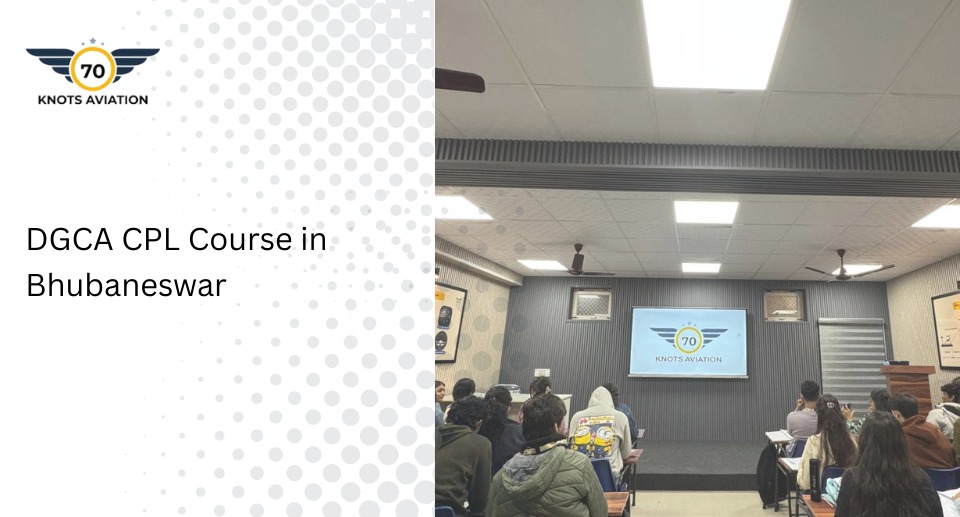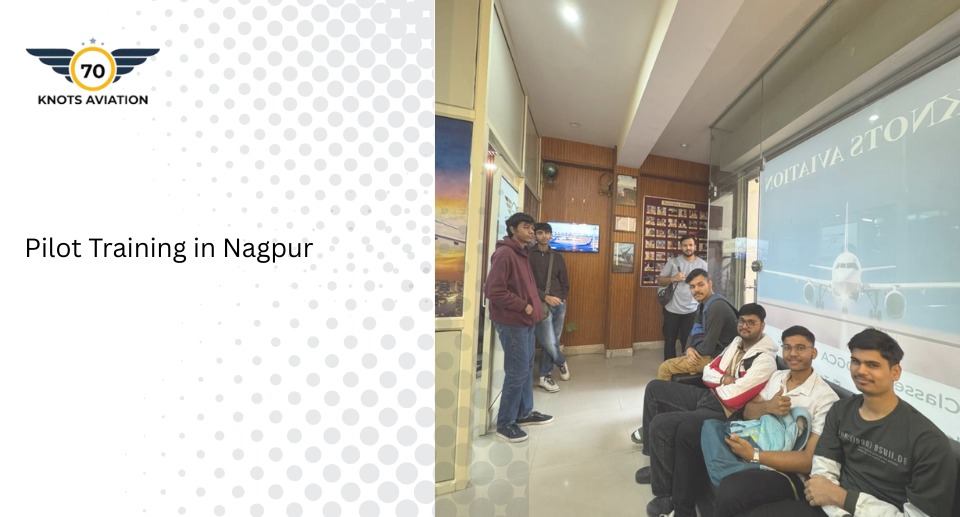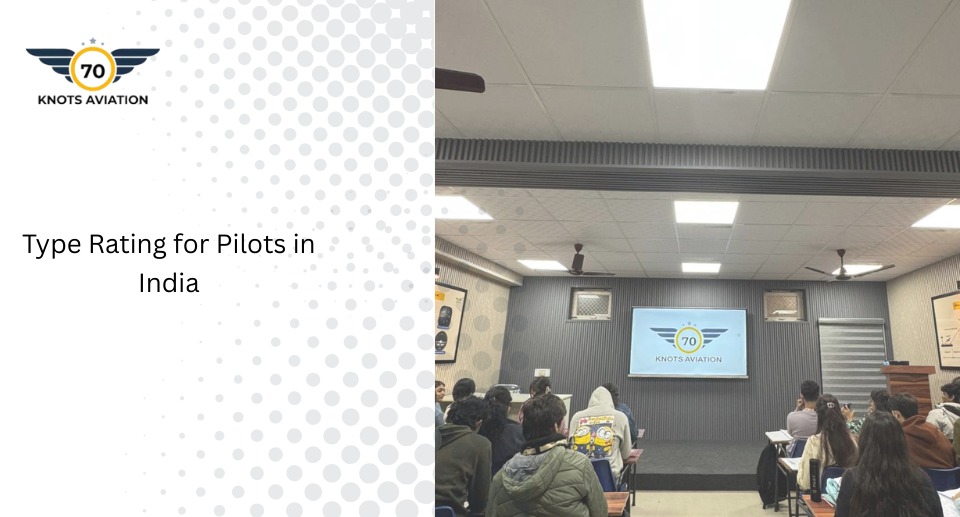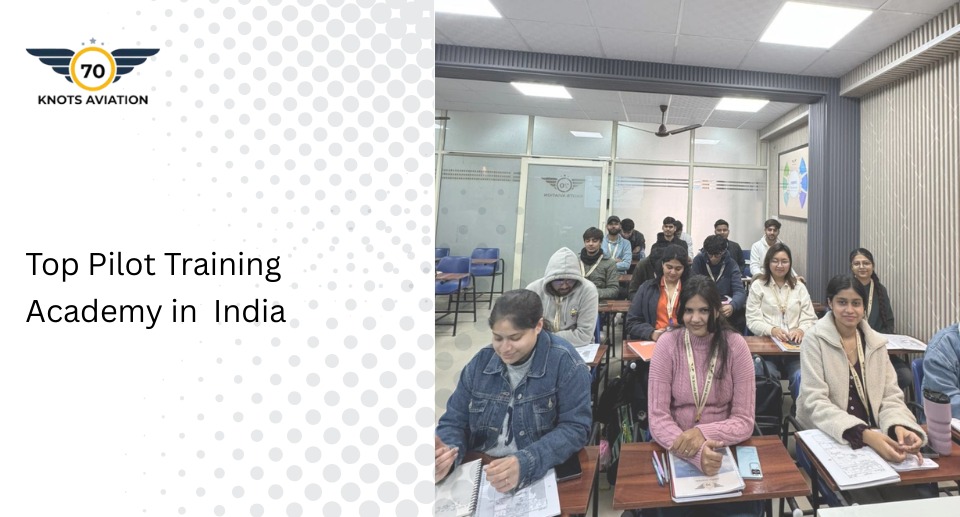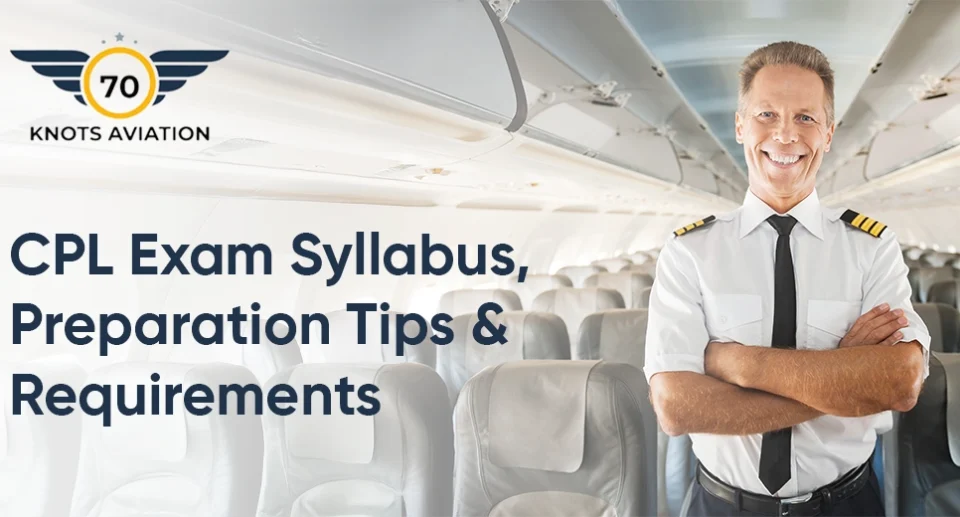Best Study Tips for Pilot Qualification Exams
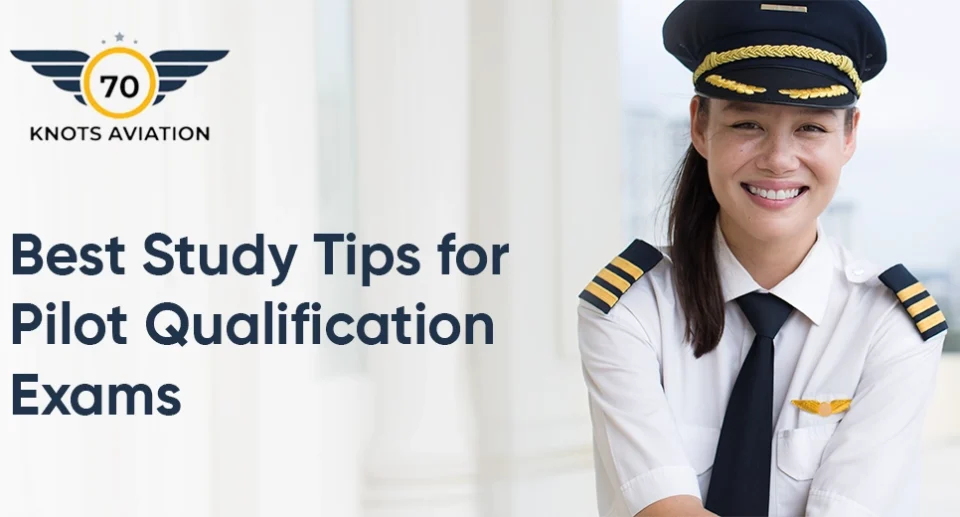
To be a pilot is not all about being in love with flying; it is about committing yourself to learning and being acquainted with aviation concepts. The initial process of earning your wings begins by passing pilot qualification tests, which are daunting on their own. From mastering aerodynamics to understanding air law, there’s a lot to cover, and the pressure to perform well is real.. With an appropriate study plan, you can add confidence and won’t need to stress or dread the exam. And if you’re looking for professional training and expert guidance, 70 Knots Aviation is the go-to platform to help you navigate this journey smoothly.
Now, let’s dive into the best study techniques that will get you cockpit-ready in no time.
Proven Study Strategies to Ace Your Pilot Qualification Exams
Success in pilot exams is not only about studying hard, but also studying smart with the right techniques and resources. The right approach with the right mindset can turn complex aviation concepts into easy-to-learn material. Here are some of the top tips to ace your pilot exams
-
Understand the Exam Structure
Take some time to familiarise yourself with the DGCA exam format before you start studying. Every pilot license, PPL (Private Pilot License), CPL (Commercial Pilot License), or ATPL (Airline Transport Pilot License) has varying licensing & topical requirements. Knowing the sections, question types, and weightage of each subject will help you prioritise what is most critical to study.
Pilot tests under DGCA most often include Air Navigation, Aviation Meteorology, Technical General, Air Regulations, and RTR (Aero) for radio communication. Knowing how the weight of the tests will be divided, these subjects enable you to optimize your study sessions.
-
Create a Study Plan
Plunging into study material without an organized plan is flying blind. Create a neat study plan, dividing topics into workable bits. Set time for theory, problems, and revision, not doing everything at the last moment. Adhere to the plan, but be accommodating enough to adjust it according to your progress.
An effective plan includes a daily reading requirement, self-evaluations every week, and updates every month. Any means of tracking, such as via a study calendar or app, and/or a study partner, can help you in this. If you need professional support for curating a successful study plan, 70 Knots Aviation provides self-directed coaching so you can stay focused and optimize your preparation.
-
Mastering Time Management for Exam Success
Time is your co-pilot in this journey. Effective time management is pivotal to covering all the subjects required while maintaining low stress levels. Place precise goals during each study session, make use of timers to remain on course, and break regularly for a few minutes to prevent exhaustion. The Pomodoro method—25 minutes of study with a 5-minute break is magic in maintaining sharp focus.
In addition, it is also important to strike a balance between study time and practice time in flight training. Many students underestimate the amount of time they require to design a flight plan, practice things in a simulator, take DGCA oral exams, or check the weather. It’s important to have a schedule that allows for practice time, as this is essential for success. At 70 Knots Aviation, we have structured impactful study courses, regular mock tests, and time management practice. This will prepare you to handle time pressure successfully when you are appearing for the actual exam.
-
Strengthen Technical and Practical Knowledge
Understanding aviation theories is one thing, but applying them is another. Don’t just memorise concepts—grasp how they work in real-world scenarios. Dive deep into aerodynamics, meteorology, and navigation principles. Practice handling of aircraft controls, if feasible, or practice cockpits as scenarios to complement your learning. Practical knowledge enhances retention. Watching DGCA-approved cockpit training videos, using flight charts, and discussing scenarios with instructors can solidify learning. At 70 Knots Aviation, we guarantee you will learn with the finest instructors, helping you pass not just your exams but ensuring that you are well-grounded in your aviation career.
-
Utilize Mnemonics and Memory Aids
Aviation is filled with technical terms, formulas, and checklists. Mnemonics can be a lifesaver when it comes to remembering complex ideas. For instance, apply “Aviate, Navigate, Communicate” to the order of actions in case of an emergency. Flashcards, acronyms, and visualisation methods can also assist with recalling information quickly. Using memory aids makes recalling key concepts easier under exam pressure. Common mnemonics include:
- ARROW (Aircraft documents: Airworthiness, Registration, Radio, Operating handbook, Weight and balance)
- IMSAFE (Pre-flight self-check: Illness, Medication, Stress, Alcohol, Fatigue, Emotion)
-
Take Mock Tests Regularly
Mock exams are not optional. Mock exams familiarise you with the exam setting, enhance time management, and reveal areas of weakness that require extra attention. Take at least one full-length mock test every week. Review your mistakes thoroughly to avoid repeating them in the actual exam. Mock tests should replicate DGCS exam conditions—timed sessions, structured question patterns, and minimal distractions. Tracking performance over time will show improvement areas. 70 Knots Aviation offers tailored mock tests and training sessions to give you an edge over the competition.
-
Maintain Physical and Mental Well-being
If you are exhausted or have an overwhelming amount of thoughts, the chances of having an optimal performance are unlikely. To be as effective as all that you have learned in your preparation for your pilot written exams, your mind and body must be healthy and ready to be effective. Ensure you get good sleep before the exam, eat healthy before the exam, and get a little exercise the day before the exam. Meditate or do breathing exercises to help you stay focused and manage exam anxiety. Aerobic exercises enhance oxygen flow, which boosts mental function. Pilots need to remain hydrated and not consume too much caffeine, as dehydration can impair concentration.
-
Stay Updated with Aviation Regulations
Aviation laws and regulations often change. Keep up with the latest changes from DGCA, which oversees pilot licensing, air safety regulations, and operational requirements in India. Check official DGCA circulars; sign up for newsletters; & join online aviation forums or groups for the latest info.
Regulations regarding airspace classifications, navigation aids, and flight planning are frequently updated. Reviewing these changes ensures compliance and improves situational awareness during exams and actual flights.
-
Leverage Digital Tools and Flight Simulators
Contemporary technology makes learning more interactive and effective. Utilizing DGCA-compliant flight simulators can significantly reinforce navigation skills, airspace management, and aircraft control procedures. Learning the use of digital tools designed for flight planning, weather assessments, and effective radio communication can also be effective in developing realistic capabilities. Digital learning platforms will also assist you in becoming knowledgeable in DGCA-appointed flight procedures, ATC communications, and their operationalness in aeronautical charts ahead of time for your exam preparation.
Simulators can also assist in practicing DGCA-prescribed emergency protocols, flight handling skills, and standard operating processes. These skills in combination (emergency protocols, flight handling skills, and standard operating processes) are central to a pilot’s training. At 70 Knots Aviation, we integrate advanced learning tools along with expert-led coaching to ensure that you gain theoretical and practical knowledge efficiently.
-
Seek Guidance from Experienced Pilots and Instructors
Improve from those who have gone through the process. Talk to DGCA-certified pilots, read aviation forums, and discuss with instructors who can clear your doubts and give you an insider’s experience. Having mentors around you will encourage you and guide you in the right direction. Pilots with years of experience can also help you navigate DGCA medical requirements, logbook maintenance, and practical flying assessments. Their advice can go a long way in your preparation. With experienced instructors having first-hand industry experience, we at 70 Knots Aviation offer one-on-one training to make sure you pass your exams and beyond.
Conclusion
To succeed in your pilot qualification exams, you will need a combination of intelligent study techniques, experiential learning, and determination. Understanding the structure of the exams, using your time wisely, and appropriately using resources will make the path to your preparation a little easier and more productive.
And don’t forget, professional guidance is what makes it all count! 70 Knots Aviation is here to guide your aviation adventure with extensive training courses, professional mentorship, and first-class learning materials. So, gear up, stay focused, and get ready to conquer the skies!

